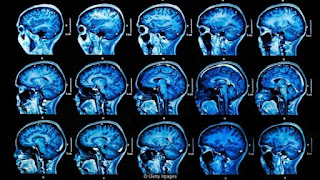'More potent' Alzheimer's therapy is on its way
Alzheimer's disease is characterized by the formation of
amyloid plaques in the brain, which interfere with the normal communication
flow between brain cells. These plaques are made out of beta-amyloid amino
acids that stick together.
Over the past few years, researchers from various
institutions have been working to develop antibodies - a type of protein
harnessed by the immune system as part of the immune response able to interfere
with beta-amyloid and prevent the formation of plaques in the brain.
But the search for effective antibodies, though promising,
has been riddled with obstacles and setbacks. That is why a team of researchers
from Brigham and Women's Hospital in Boston, MA, has recently conducted a
series of experiments to identify a better way of targeting beta-amyloid.
This, they hoped, would lead to the development of a more
efficient antibody to be used in Alzheimer's therapy.
Principal investigator Dominic Walsh and team came up with a
novel technique to collect beta-amyloid and to prepare it in the laboratory.




Comments
Post a Comment